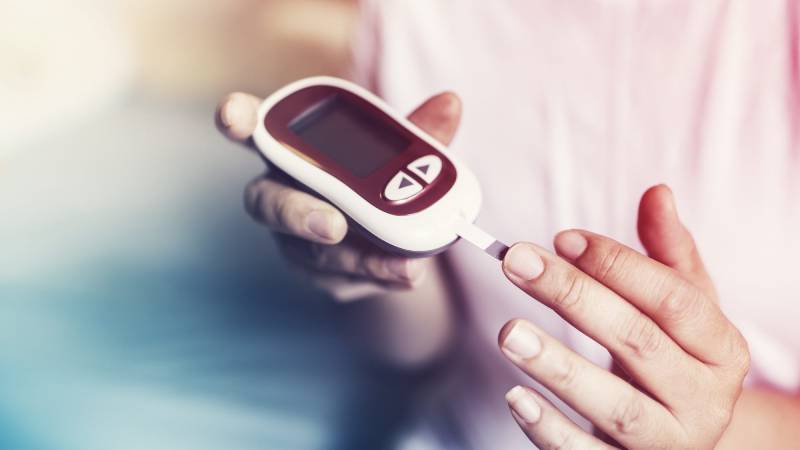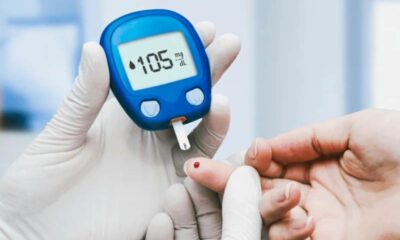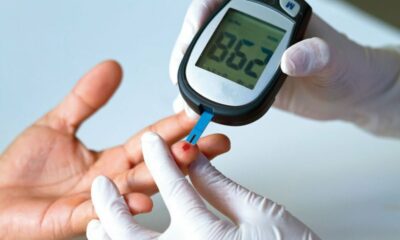Diabetics face a multitude of challenges in managing their health, and one crucial aspect often goes under-recognized: the significant impact blood sugar levels have on vision. Chronically high blood sugar, a hallmark of diabetes, can wreak havoc on the delicate structures of the eye, potentially leading to vision loss if left unchecked. This comprehensive guide delves into the intricate link between blood sugar and vision, empowering diabetics with insights to protect their precious sight.
Understanding Blood Sugar and the Eyes
Blood sugar, also known as blood glucose, is the fuel that energizes our bodies. When we consume carbohydrates, they break down into glucose, which enters the bloodstream via the digestive system. The hormone insulin, produced by the pancreas, acts as a key, unlocking cells to allow glucose absorption for energy production. In diabetes, this system malfunctions. Either the body doesn’t produce enough insulin (Type 1 diabetes), or cells become resistant to its effects (Type 2 diabetes), resulting in persistently high blood sugar levels.
The eye is a complex organ reliant on a healthy vascular system to function properly. The retina, a light-sensitive layer at the back of the eye, plays a vital role in vision. Tiny blood vessels nourish the retina, delivering oxygen and nutrients essential for its optimal function.
Diabetic Retinopathy: The Major Threat
When blood sugar remains elevated for extended periods, it damages these delicate blood vessels in the retina. This condition, known as diabetic retinopathy, is the leading cause of blindness in working-age adults. It often progresses through stages, initially presenting with no noticeable symptoms. However, as the damage intensifies, individuals may experience:
- Blurred vision: Fluctuating blood sugar levels can cause the lens of the eye to swell, leading to temporary blurry vision.
- Floaters: Tiny spots or specks that appear to float in your field of vision can be a warning sign of bleeding within the eye.
- Decreased night vision: Damage to the light-sensitive cells in the retina can impair your ability to see clearly in low-light conditions.
- Visual field loss: Peripheral vision may deteriorate, creating blind spots in your visual field.
- Macular edema: Fluid leakage from damaged blood vessels can accumulate in the macula, the central part of the retina responsible for sharp, central vision. This can lead to significant vision distortion.
The Importance of Early Detection and Management
The insidious nature of diabetic retinopathy highlights the importance of regular eye examinations for diabetics. Early detection, even before symptoms arise, allows for timely intervention to prevent vision loss. Here’s why early detection is crucial:
- Treatment options are most effective in the early stages: Early intervention can slow or even halt the progression of diabetic retinopathy, preserving vision.
- Diabetic eye exams are painless and non-invasive: A dilated eye exam, where a healthcare professional widens the pupil to examine the retina, is a quick and painless procedure that can detect early signs of damage.
- Regular screenings are essential: Even with good blood sugar control, regular eye exams are necessary to monitor for any changes in the retina.
Treatment Options for Diabetic Retinopathy
Depending on the severity of diabetic retinopathy, various treatment options may be available:
- Blood Sugar Control: The cornerstone of managing diabetic retinopathy is maintaining optimal blood sugar levels through diet, exercise, and medication.
- Laser Therapy: Laser treatment can be used to seal leaking blood vessels and prevent further damage to the retina.
- Anti-VEGF Injections: Medications can be injected into the eye to reduce macular edema by inhibiting the growth of abnormal blood vessels.
- Vitrectomy: In severe cases, surgery may be necessary to remove scar tissue or blood from the vitreous cavity, the gel-like substance in the eye.
Beyond Diabetic Retinopathy: Other Vision Concerns
While diabetic retinopathy is the most significant threat, other eye conditions can be more prevalent in diabetics:
- Cataracts: Cataracts are a clouding of the eye’s lens, causing blurry vision. Diabetics are at an increased risk of developing cataracts at a younger age.
- Glaucoma: This condition involves increased pressure inside the eye, damaging the optic nerve and potentially leading to vision loss. Diabetics are more susceptible to glaucoma.
Empowering Diabetics to Protect Their Vision:
Living with diabetes requires constant vigilance, and maintaining good eye health is an essential component of self-care. Here are key strategies for diabetics to safeguard their vision:
- Prioritize Blood Sugar Control: Work with your healthcare team to develop a personalized plan to manage your blood sugar effectively. This may involve dietary adjustments, exercise routines, and medication regimens.
- Schedule Regular Eye Exams: Don’t wait for symptoms to appear. Schedule comprehensive dilated eye exams annually, or more frequently if recommended by your ophthalmologist (eye doctor).
- Maintain a Healthy Lifestyle: A healthy lifestyle that incorporates a balanced diet, regular exercise, and adequate sleep contributes significantly to overall health, including eye health.
- Quit Smoking: Smoking significantly increases the risk of developing various eye diseases, including diabetic retinopathy. Quitting smoking is one of the most impactful steps you can take to protect your vision.
- Be Aware of Warning Signs: Familiarize yourself with the potential symptoms of diabetic retinopathy, such as blurred vision, floaters, and vision loss. Report any changes in your vision to your ophthalmologist promptly.
- Stay Informed and Ask Questions: Don’t hesitate to ask your doctor or ophthalmologist questions about diabetic retinopathy, treatment options, and preventative measures. The more informed you are, the better equipped you are to manage your condition.
Living with Diabetes and Maintaining Healthy Vision
Diabetes is a lifelong condition, but with proper management, individuals can live fulfilling lives with minimal impact on their vision. By prioritizing blood sugar control, scheduling regular eye exams, and adopting a healthy lifestyle, diabetics can significantly reduce their risk of vision loss. Remember, early detection and intervention are key. Take charge of your health, become an active participant in your care, and safeguard your precious gift of sight.
Note: This guide is intended for informational purposes only and should not be construed as medical advice. Always consult with your healthcare professional for personalized recommendations regarding your vision health and diabetic retinopathy management.

 Diabetology2 weeks ago
Diabetology2 weeks ago
 Diabetology1 week ago
Diabetology1 week ago
 Diabetology6 days ago
Diabetology6 days ago
 Diabetology7 days ago
Diabetology7 days ago
 Diabetology7 days ago
Diabetology7 days ago
 Diabetology4 days ago
Diabetology4 days ago
 Diabetology4 days ago
Diabetology4 days ago
 Diabetology2 days ago
Diabetology2 days ago














